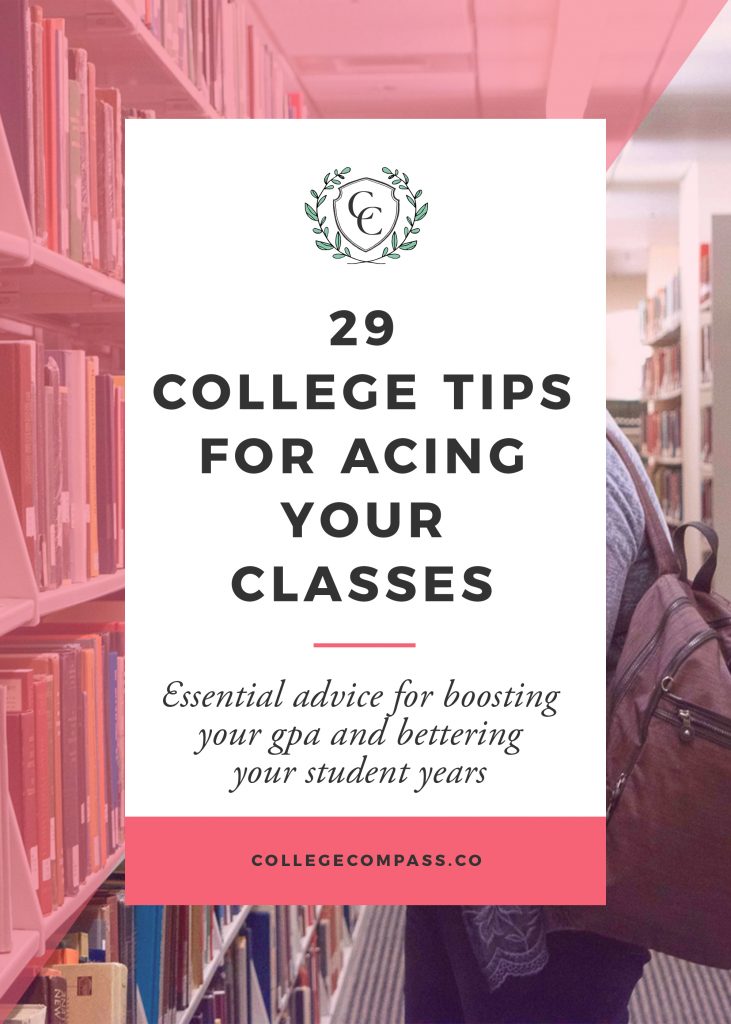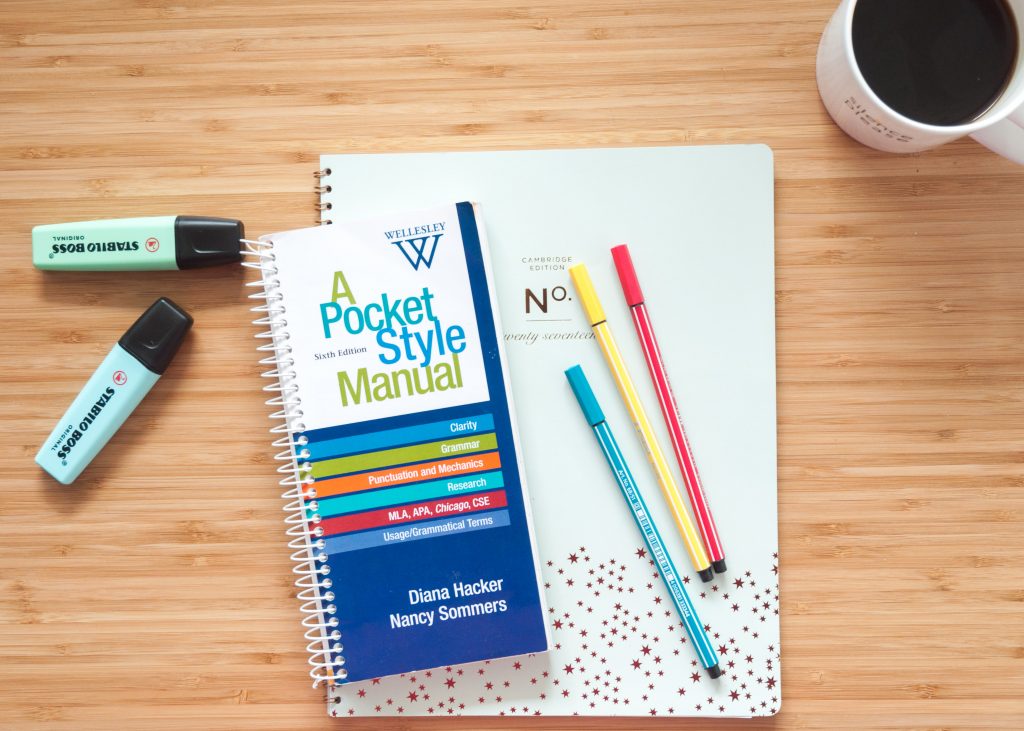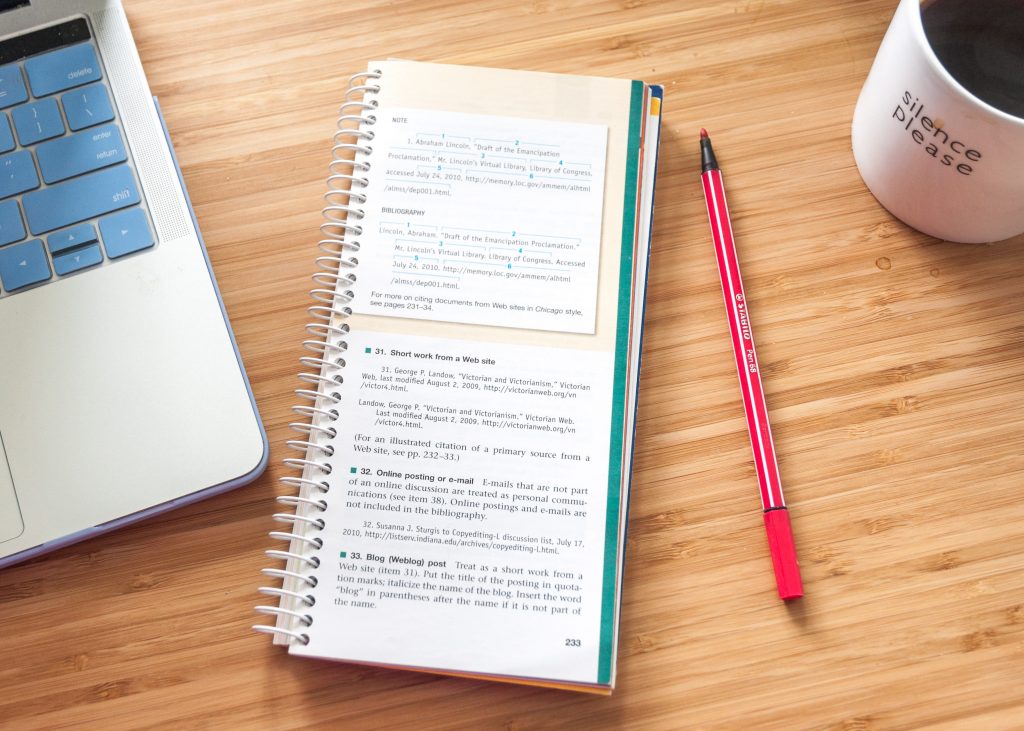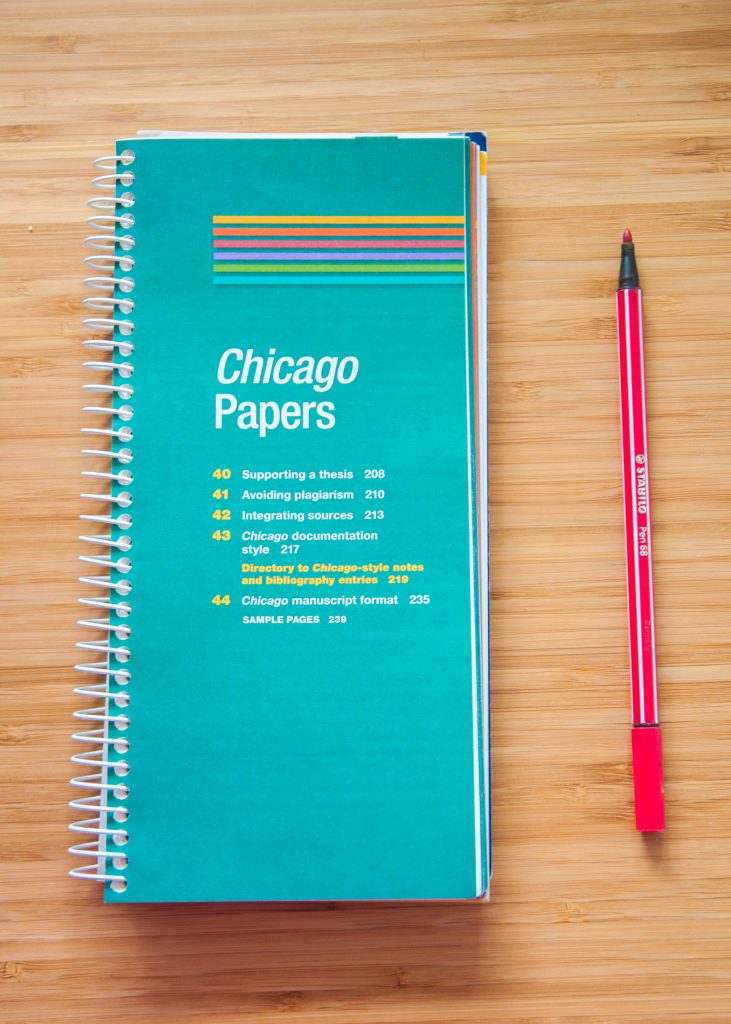In my four years at college, I’ve learned a lot. One of the areas where I’ve learned the most is academics, where I’ve improved in everything from studying, to taking class notes, to writing a final paper. But it doesn’t need to take you four years to learn these skills; all you need is someone to show you the ropes. That’s why today, I’m sharing 29 college tips for acing your classes, so you can be more productive, boost your GPA, and have a happier college life!

College Tips for Resources
Get to know your professors. They are your best friends when it comes to succeeding in college, whether that means getting an A, passing the class, or getting through the semester stress-free. Having a positive relationship with a professor makes a huge difference for classes, advice, and recommendations!
Go to office hours. Professors make time to see you outside of the classroom— take advantage! This is a great time to review concepts from class, ask questions, and get advice.
Don’t skip classes (often). I’m all for a mental health day every now and then, but do your best to go to class as often as possible. There really are things you can’t learn from a textbook.
Get a tutor if you need one. There is absolutely no shame in getting extra help. There are often peer tutors, class tutors, or online resources you can draw upon to get extra help with your classes. A good place to start is the website of your college’s library; they’ll often have a page of student resources.
Take advantage of the extra resources on your campus. Almost every college has resources and help centers on campus to help their students succeed. Look online to see if your college has a tutoring center, departmental tutors, or academic student leaders on campus. These people can help you understand new concepts, improve your essays, and even work on balancing your schedule!
Get to know your dean or adviser. They can help you if need be. Deans and advisers are great resources when you’re struggling academically or personally and need some help. They can vouch for you when it comes to dealing with your college administration.
Use the library, and become familiar with its catalogue. Knowing your way around your college library is like a secret superpower when it comes to studying or writing final papers. It will save you time and energy.

College Tips for Successful Habits
Find what motivates you and reflect on it often. Motivation is truly the foundation of success. I need goals to keep pushing me forward, so I constantly reflect on my goals to keep myself moving forward. Check out my Ultimate Guide to College Motivation if you want to motivate yourself!
Get organized. Is it any surprise that I would recommend this? Getting organized for school is such a crucial step for staying on top of your assignments, work, and schedule. There are plenty of helpful resources to draw upon if you’re not sure where to get started. Take a look at the ones below!
Work hard and don’t mess around. College may be some of the most fun and formative years of your life, but it should also be a time to focus and hit the books. Your education is costing someone — whether you, your parents, or someone else — a lot of money. Don’t waste it.
Figure out your best study mode, and find a good place to study. Some people study better with friends, music, and snacks galore. Others prefer peace and quiet. Find what works for you and stick to it!
Take classes outside your comfort zone. I’m a religion major, but in four years I’ve studied everything from computer programming, to geoscience, to health statistics, to German cinema! In part, that’s due to distribution requirements and a liberal arts education, but I have no regrets about choosing these classes. College is a time to explore and expand your boundaries, outside and inside a classroom. Challenge yourself. Learn something new. You won’t regret it.
College Tips for Finding Your Way
If you procrastinate, find ways around it, or learn to work with it. Do your best to work around your procrastinatory habits by figuring out what’s holding you back. Is it perfectionism? Overwhelm? Exhaustion? Figure it out and find ways to address it.
Consider a double-major or a minor if you have multiple significant interests, but know that sticking with one major is fine and can still get you a job. If you love Biology and Music equally, there’s no reason you can’t study both. But if you’re truly passionate about only one subject, that’s fine, too. Employment has a lot more to do with tenacity, experience, and ability to learn than it has to do with your actual major.
Ask upperclassmen which professors and classes changed them or helped them learn the most. Take those classes.
Drop and switch classes if need be, but do so early so that you don’t fall behind. In college, there are few things worse than struggling to keep up.
Get your distribution requirements and harder classes out of the way early. Taking your distributions early gives you more freedom later in college to take the classes you’re excited about.
If you have special needs or require accommodations, go after them. Connect with a health or disability group on campus, reach out to your disability resource center, email your professors, and get the help you need.
Take a wide variety of classes in your first two years. Focus in on your passions after that. This lets you get your distributions out of the way, discover your passions, and meet new people early on in college. Once you’re more settled and know what you want to study, you can dig deep in the major.
College Tips for Mindset
GPA is important, but it’s not the most important thing. It won’t make or break you. Remember that it’s just a number.
You don’t have to know everything when you come in. It’s okay to spend some time wandering.

College Tips for Acing Your Assignments
Make outlines for your papers. When it comes to essay writing, I’m lost without an outline. Learn how to make one in this Ultimate Guide to Writing a College Paper.
Make study plans for your finals. Not sure how? Check out how to make a study plan for final exams.
Learn the class material when it’s taught, instead of cramming before every exam. There’s no reason to come to class only to zone out, and then stress like crazy weeks later as you cram for finals. Show up to class, in every sense of the word. You won’t regret it.
Keep an assignment list. It can save your butt when it comes to keeping track of everything you need to do. See how I do it here.
Don’t cheat. Even if you don’t get caught, it won’t be fun to live with yourself afterwards.
Get familiar with citation guides. Nothing ruins a paper like sloppy citations. Whether your professor prefers APA, MLA, or Chicago, know what they want and learn how to do it. Hacker and Sommers’ Pocket Style Manual completely saved my life time and time again.
Link to: Pens, Highlighters, Notebook (Similar), Pocket Style Manual
Citation and bibliography style completely overwhelm some people, but it really doesn’t need to be hard. When I started my first year at Wellesley, all students were required to buy this style guide from the school bookstore, and it completely changed the way I write.
In high school, I was expected to write in MLA format, where you put the name of the author at the end of a sentence in parentheses (like this). But in college, I had to learn Chicago style, which used footnotes and had a different formatting style. This guide taught me how to do that, how to write in APA for my intro to Psychology class, how to avoid plagiarism, and much more.
Link to: Pens, Pocket Style Manual
I strongly recommend that you get this book if you’re looking to upgrade your writing and make it sharp and well-cited! You can get school-specific ones or the general one (from what I can tell, there’s not much difference) on Amazon.
Link to: Pen, Pocket Style Manual
Learn to write well. Be clear and concise; avoid clichés. The Elements of Style by Strunk and White will teach you the basics, and my good friend Taylor recommends Spunk & Bite: A Writer’s Guide to Bold, Contemporary Style
for adding some style. The Pocket Style Manual should also teach you some of this.
Don’t plagiarize. You’ll likely be kicked out of school if you get caught; and, if you don’t, you still have to live with yourself. This includes paying someone to write your essay for you. It’s cheating. Don’t do it. Again, the Pocket Style Manual will cover this if it’s something you’re unsure about.
These tips are just a starting point for success. You can ace your classes and love your college years with the right attitude and tools.
What’s your best tip for academic success? Let us know in the comments!
See More College Tips:
- College Tips for Dorm Life
- Career and Finance Tips for College Students
- 7 Tips for Making Friends in College

This post was originally published as part of a longer list of college tips on SaraLaughed.com. It has been modified and improved for use at College Compass.






Such great tips and resources! I’ll definitely have to try out “A Pocket Style Manual”. I was taught my whole life to write in MLA but now all my classes want APA, a form I was never taught! I’m all about going to your professors for help because they’re the ones that grade you! They know what you need to learn, and they obviously don’t want you to do horribly because then that makes them look bad as a teacher. Office hours and going to them for extra help is the way to go!
Great tips. I tutor academic writing and the resources and advice you give for improving writing are spot-on. I’ll be sharing this with them! Oh, I haven’t read Spunk & Bite: A Writer’s Guide to Bold, Contemporary Style, so I’ll have to check it out.
I’m loving your blog—so much great advice! Just a heads up on the Pocket Manual. The link goes to the 6th edition, but the 7th edition now includes the 2016 MLA update.
Here’s the link for the newest edition: https://www.amazon.com/Pocket-Style-Manual-2016-Update/dp/1319083528/ref=sr_1_2?s=books&ie=UTF8&qid=1516735297&sr=1-2
Also, on your organization article, the video link is broken.